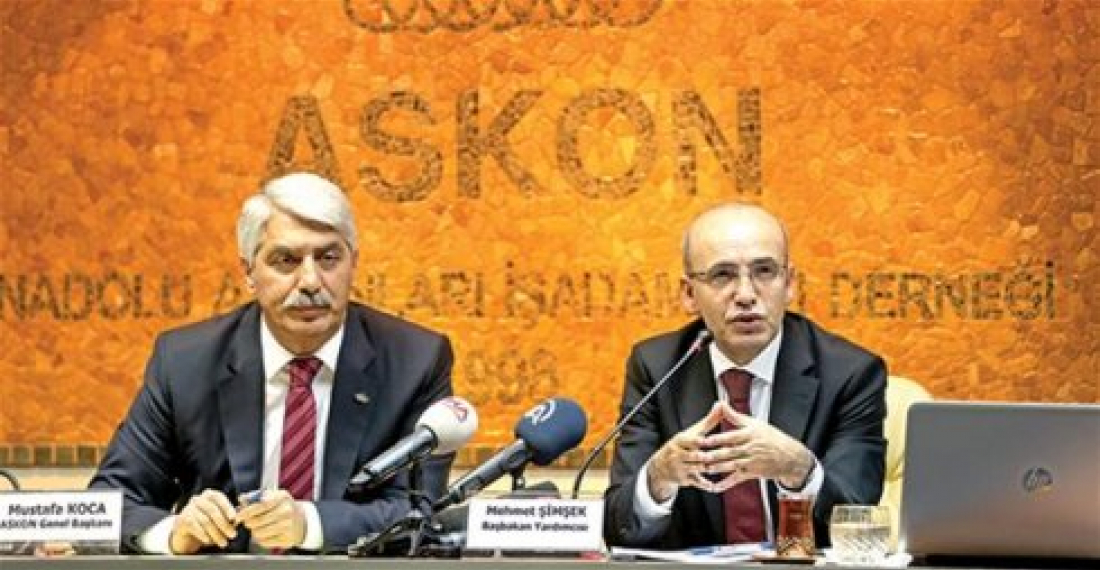At a time when relations between Turkey and the European Union are at a difficult moment, and as Turkish leaders, from president Erdogan down, shower criticism on Europe for a multitude of perceived grievances, a senior Turkish Minister has paid an unexpected compliment to Europe, putting things into perspective.
Deputy Prime Minister Mehmet Simsek said that Turkey's EU accession process is of critical importance for improving the quality of institutions and democratic standards in the country,
"What we mean here is not only about becoming a member of a club. There have recently been many discussions about this subject. Europe is actually a reference point for us. We want to move forward our democratic standards. We want to improve the rule of law and the quality of our institutions. Europe has advanced standards in this regard," he said, adding that Turkey's negotiations with the European Union needed to be considered in this vein.
"These standards can of course be reached without Europe, but having a reference point matters a lot," he said.
Simsek made the comments in a speech at the Anatolian Lions Business Association (ASKON) on Thursday (10 November), as reported by Anadolu Agency.
In the meantime it has also been announced that German Foreign Frank-Walter Steinmeier will visit Turkey next week. Speaking in the Bundestag, Steimeier said that he would visit Turkey on 15 November. The German Foreign Minister said cutting off talks with Turkey about joining the European Union would hurt Turkish citizens as well as the government.
"If we slam the door now and throw away the key, then we will disappoint many people in Turkey who are looking to Europe for help and support, especially now," Reuters quoted him as saying.
But Steinmeier repeated that any reintroduction of the death penalty in Turkey would mean the "unmistakable end" of negotiations on Turkey's entry into the EU, and he said Berlin would continue to press Ankara to respect the rule of law.
source: commonspace.eu with Anadolou Agency and Hurriyet Daily News.
Photo Turkish Deputy Prime Minister Simsek addressing a meeting of the Anatolian Lions Business Association on Thursday 10 November 2016 (picture courtesy of the Anadolou News Agency)






